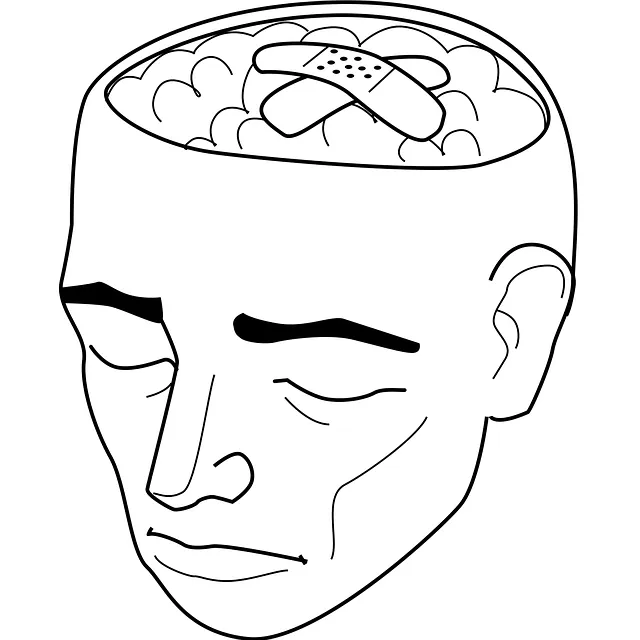The Lafayette Kaiser Permanente mental health facility prioritizes crisis intervention with personalized strategies. Using evidence-based practices and specialized teams, they offer techniques like self-awareness exercises, self-care practices, and emotional healing processes to stabilize patients during acute crises. Their focus on coping skills development, cultural competency training, and self-esteem improvement equips individuals with tools for future challenges. Through comprehensive training and dedicated resources, Lafayette Kaiser Permanente provides compassionate care, ensuring effective intervention during moments of vulnerability.
In times of crisis, effective interventions can make a profound difference. This article explores crucial strategies and guidance for managing mental health crises at the Lafayette Kaiser Permanente Mental Health Facility. We delve into key practices that have proven essential in providing swift and supportive responses. Understanding the unique challenges faced by this facility, we examine the role of training and resources in empowering staff to navigate crises successfully, ensuring the well-being of those in their care.
- Understanding Crisis Intervention at Lafayette Kaiser Permanente Mental Health Facility
- Key Strategies for Effective Crisis Support
- The Role of Training and Resources in Facilitating Rapid Response
Understanding Crisis Intervention at Lafayette Kaiser Permanente Mental Health Facility

At Lafayette Kaiser Permanente Mental Health Facility, crisis intervention is a cornerstone of patient care. It involves immediate and intensive support to individuals facing severe emotional distress or mental health crises. The facility recognizes that each person’s experience of crisis is unique, necessitating tailored interventions that address both the immediate needs and underlying factors contributing to the crisis.
Guided by evidence-based practices and the expertise of its specialized team, Lafayette Kaiser Permanente offers a range of crisis intervention strategies. These include Self-Awareness Exercises designed to help individuals gain insight into their triggers and emotional responses, Self-Care Practices promoting coping mechanisms for managing stress and distress, and Emotional Healing Processes focused on fostering resilience and restoring balance in one’s life. Through these comprehensive approaches, the facility aims to not only stabilize patients during acute crises but also empower them with the tools needed to navigate future challenges effectively.
Key Strategies for Effective Crisis Support

At the Lafayette Kaiser Permanente mental health facility, crisis intervention strategies are tailored to address the unique needs of each individual. A key strategy involves Coping Skills Development. Equipping individuals with effective coping mechanisms enables them to navigate stressful situations more adeptly. This includes teaching relaxation techniques, problem-solving strategies, and emotional regulation skills that foster resilience in the face of adversity.
Another vital aspect is enhancing Healthcare Provider Cultural Competency Training. Understanding cultural nuances ensures that support is delivered sensitively and effectively. By recognizing and respecting diverse backgrounds, healthcare providers can create an environment where individuals feel heard, validated, and supported. This, in turn, promotes open communication and facilitates a deeper exploration of the crisis at hand. Additionally, focusing on Self-Esteem Improvement plays a pivotal role in crisis intervention. Boosting self-worth empowers individuals to challenge negative thought patterns, fostering a sense of empowerment and encouraging proactive engagement in recovery processes.
The Role of Training and Resources in Facilitating Rapid Response

At Lafayette Kaiser Permanente mental health facility, comprehensive training plays a pivotal role in equipping staff with crisis intervention strategies. This includes specialized programs tailored to identify and address various mental health crises, such as depression prevention workshops and empathy-building strategies. By fostering an environment where professionals are adept at recognizing early signs of distress, rapid response teams can be activated promptly.
The availability of adequate resources is equally crucial. This encompasses not only physical spaces designed for crisis de-escalation but also access to evidence-based tools and techniques. For instance, resilience-building programs equipped with cognitive-behavioral therapy methods enable staff to assist individuals in managing stress and building coping mechanisms. Such proactive measures ensure that the Lafayette Kaiser Permanente facility can provide effective, compassionate care during moments of heightened vulnerability.
Crisis intervention plays a vital role in mental healthcare, as demonstrated by Lafayette Kaiser Permanente’s innovative approach. By understanding the unique challenges faced during crises and implementing effective strategies, such as those discussed here, the mental health facility can provide swift and supportive care. Training and resource allocation are key enablers for a rapid response system, ensuring that staff are equipped to handle various crisis scenarios. This comprehensive guidance not only benefits the Lafayette Kaiser Permanente mental health facility but also serves as a model for enhancing crisis intervention across similar healthcare settings.






